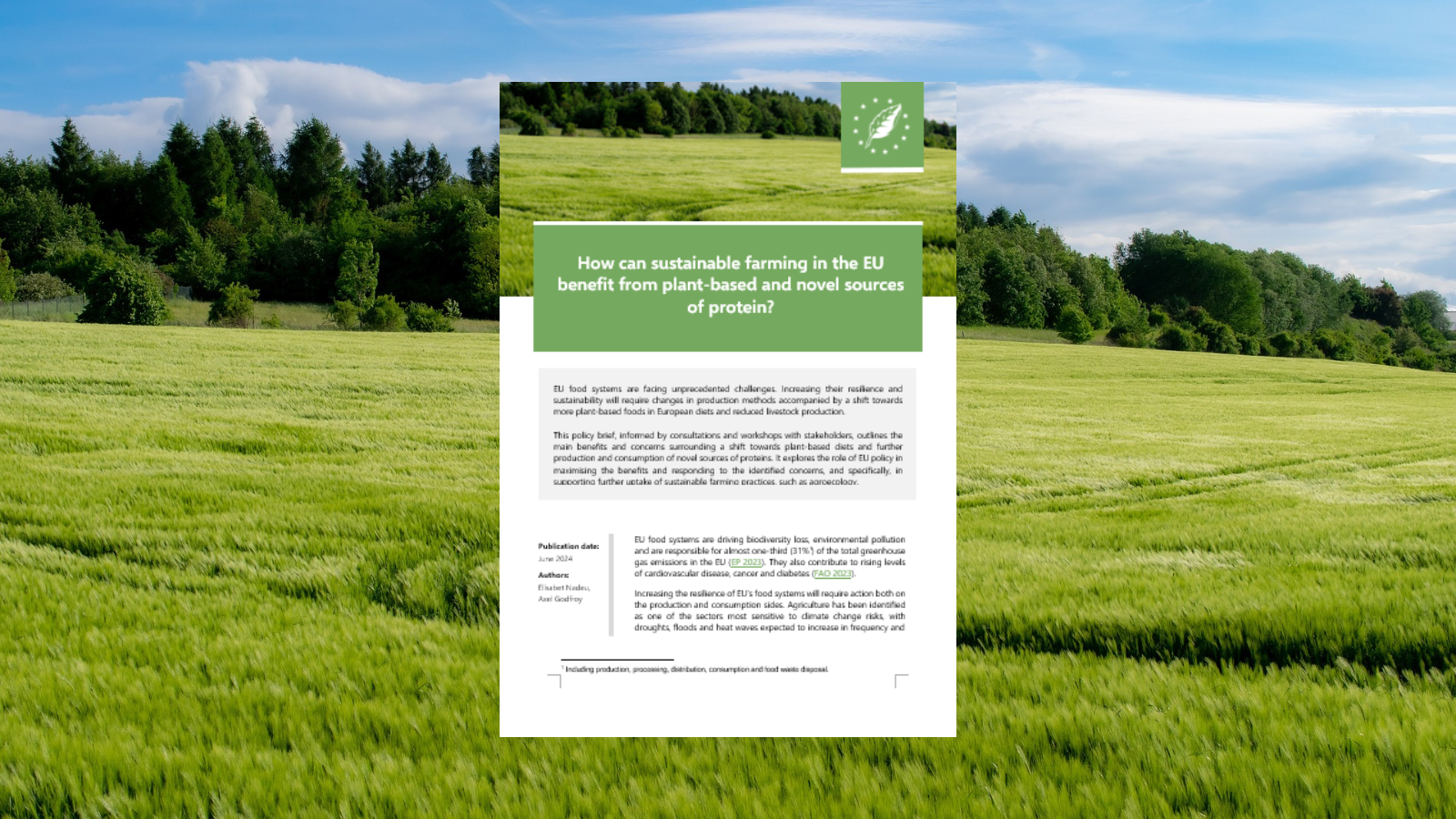AUTHORS: Elisabet Nadeu, Axel Godfroy
This policy brief outlines the main opportunities and concerns surrounding a shift towards plant-based diets and further production and consumption of novel sources of proteins. It also explores the role of EU policy in maximising the benefits and responding to the concerns linked to this shift.
Agriculture has been identified as one of the sectors most sensitive to climate change risks, with droughts, floods and heat waves expected to increase in frequency and intensity over the coming decades. At the same time, EU food systems are driving biodiversity loss, environmental pollution and are responsible for almost one-third of the total greenhouse gas emissions in the EU. They also contribute to rising levels of cardiovascular disease, cancer and diabetes.
A shift towards more plant-based foods in European diets, increased uptake of sustainable farming practices and a reduced livestock sector are widely regarded by researchers as necessary steps to increase the resilience and sustainability of EU food systems.
Novel sources of protein have significant potential to reduce the environmental footprint of protein production compared to conventional animal-based foods. If increased uptake of these foods goes hand in hand with a reduction of livestock production, large amounts of land could be freed up. This has been highlighted as an opportunity to repurpose this land for nature restoration or to expand less intensive forms of farming such as agroecology. However, there is not an automatic link between the development of these novel sources of protein and the upscaling of sustainable farming practices in the EU. Neither is there a guarantee that these products will reduce livestock production.
In this context, this brief, informed by consultations and workshops with stakeholders, explores the role of EU policy in maximising the benefits and responding to the identified concerns related to novel alternative proteins, and specifically, in their role in supporting further uptake of sustainable farming practices, such as agroecology. It concludes that a suitable policy mix is needed that:
a) Supports sustainable and agroecological farming systems, including extensive and high nature value livestock;
b) Addresses unsustainable livestock systems, and provides just transition support;
c) Contributes to increasing demand and take up of more plant-based diets in the EU and novel sources of proteins;
d) Addresses the development of the most promising novel sources of proteins from an environmental, climate, health and social perspective.
This brief has been produced with the financial support of the Good Food Institute Europe. Download the briefing.
Cover image by Cornell Frühauf from Pixabay

